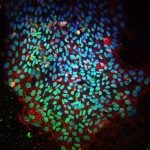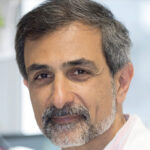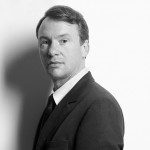Link to Pubmed [PMID] – 19317647
Regen Med 2009 Mar;4(2):293-319
Tissue development and regeneration share common features, since modules of regulatory pathways and transcription factors that are crucial for prenatal development are redeployed for tissue reconstruction after trauma. Regenerative medicine has therefore gained important insights through the study of developmental and regenerative biology. Moreover, diverse experimental models have been used to investigate the regeneration process in different tissues and organs. Paradoxically, little is known regarding the relative contribution of stem cells with respect to the supporting tissue during tissue regeneration. Particular attention will be given to mouse models using distinct injury paradigms to investigate the regenerative biology of skeletal muscle. An understanding of the response of stem and parenchymal cells is crucial for the development of clinical strategies to combat the normal decline in tissue performance during aging or its reconstitution after trauma and during disease. This review addresses these issues, focusing on muscle regeneration and how different factors, including genes, cells and the environment, impinge on this process.


